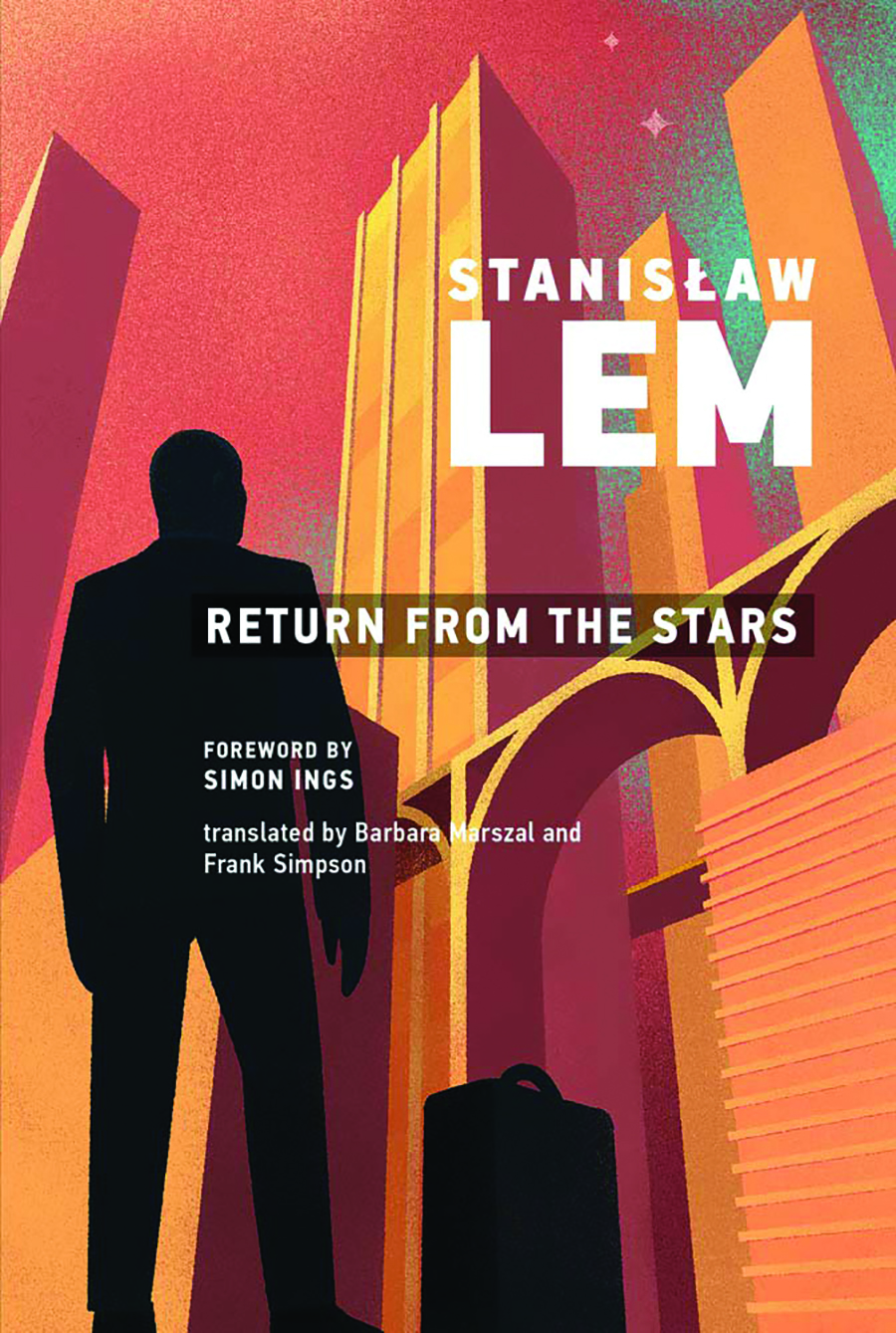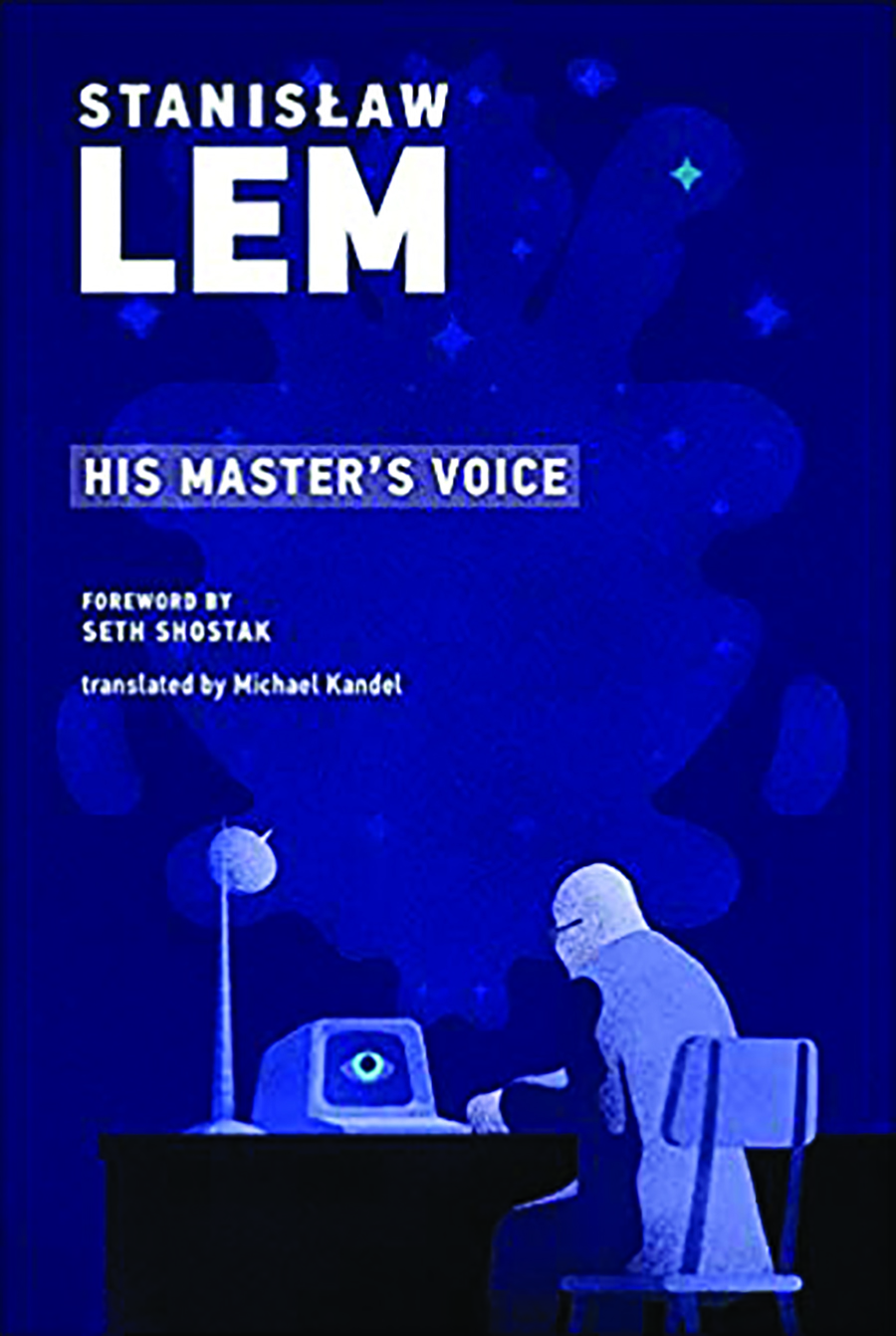Synopses may not accomplish much in explaining the appeal of the works of Stanislaw Lem. A message arrives from the stars, and humanity comprehensively fails to decipher it. An astronaut returns from a centurylong mission that we barely hear about. A robotic swarm extinguishes nearly all life on a planet, and a mission can’t figure out anything to do to counter it. Yet Lem is one of the few world-renowned science fiction authors not to have written in English, with fans as diverse as Anthony Burgess, Douglas Hofstadter, Carl Sagan, and John Updike. Six of his works have been rereleased by MIT Press this month, all of them excellent.
Born to a Jewish family in Lwow, then in Poland, in 1921, Lem survived World War II thanks to forged papers and trained as a doctor before beginning his writing career. He drifted into sci-fi in part because it was easier to escape communist censors — in outer space, he could write what he pleased. His sensibilities, however, remained literary: He dismissed most sci-fi as “empty games.” Good science fiction, in his view, involved “the art of putting hypothetical premises into the very complicated steam of socio-psychological occurrences.”

Lem was tremendously skilled at not only dreaming up fantastical scenarios but precisely calibrating them to unsettle our schemes for understanding the world. It’s easier to venture beyond the limits of the galaxy than those of our knowledge, and Lem repeatedly struck at the artificially tidy relations we impose on reality. He labored strenuously to imagine things we haven’t seen before and generally foregrounded protagonists who don’t comprehend them. Ursula Le Guin commented about his work, “We are not yet used to hearing that there are things that we don’t understand.”
Lem’s novels frequently begin with relatively relatable scenarios that are then destabilized by theoretical blows. We meet the protagonist of Return from the Stars, for instance, as he chats with a girl after returning from his space mission. She asks how long. 137 years. As he aged slowly on his mission, the world he left behind became unrecognizable. The astronaut attempts to read up on what happened in his absence only to discover that humanity abandoned space travel long ago. His whole mission was dismissed as pointless decades before it ended. Space was so vast as to foreclose the possibility of communication: “The questions and answers, then, would miss one another, would suffer hundred-century delays, which would nullify and make any exchange of experiences, values, and ideas impossible.”

Another of the rereleased books, The Invincible, involves a mission in pursuit of a ship that’s gone silent on an unknown planet. The planet is barren of life, save, puzzlingly, for deep in its ocean. The astronauts discover an aged automaton, which isn’t just rusty but covered in limestone, making it, in another classically destabilizing Lem touch, “at least three hundred thousand years old.” “Life” on this planet consists of fly-like swarms that robotically evolved from early automatons and became extremely adept at self-preservation without any sort of brain or natural instinct. This boggles more than a few minds.
His Master’s Voice is set on a recognizably Cold War-era Earth at a Los Alamos-style facility where the protagonist has been tasked with helping to decipher a transmission from the heavens. It’s no ordinary telegraph but a repeating 416-hour sequence. Experts from a variety of fields are gathered. Scientists aren’t ideal: “Because scientists learn to conduct so-called games with nature, with a nature that is not — from any permissible point of view — a personal antagonist, they are unable to countenance the possibility that behind the object of investigation there indeed stands someone.” Nor are linguists, since their knowledge is so tied to human beings. A message such as “MOTHER DEAD FUNERAL WEDNESDAY” can be translated into any human language, since all societies have mothers, death, funerals, and calendars. “But beings that are unisexual would not know the distinction between mother and father, and those that divide like amoebas would be unable to form the idea even of a unisexual parent.” This alien intelligence lies not only beyond the stars but beyond all human understanding — not a single expert even knows where to begin.

Several of Lem’s more comic stories, featuring his recurring hero Ijon Tichy, are collected in Memoirs of a Space Traveler. Tichy, a picaresque everyman, is a fount for Lem’s humor. The best of these stories paints the carnival of litigation that would inevitably surround legal personhood for future robots, most of whom are as depraved as we are, such as a cybernetic washing machine:
“Murdstone’s washer flagrantly tore his shirts, ruined radio reception throughout the neighborhood with static, propositioned old men and juveniles, telephoned various individuals and — impersonating its owner — extorted money from them; it invited the neighbors’ floor polishers and washers in to look at postage stamps but then performed immoral acts upon then; and in its spare time the machine engaged in vagrancy and panhandling.”
Lem’s work often ventured outside of science fiction — for all of the hard sci-fi he authored, he sits more easily with Jorge Luis Borges or Italo Calvino than most genre authors. Perhaps his greatest metafictional caprice, A Perfect Vacuum (not among these reprints), consists entirely of reviews of books that don’t exist (and a review of the book itself, in which he pans the whole idea). Some of his work was entirely realistic. His early novel The Hospital of the Transfiguration, obviously indebted to The Magic Mountain, presents a filthier and grimmer variant of Thomas Mann’s epic: A young doctor goes to work in an asylum after the German invasion of Poland in 1939 — a literal madhouse on the edge of genocide.
The last of these reprints, Highcastle, is a fascinating memoir of Lem’s youth in Lwow, both a bittersweet lament for the passing of youthful possibility and an extended meditation on the limits of memory. “Our thoughts,” Lem writes:
“Are like underground tunnels that collapse. Although tight-fisted and indifferent, memory knows everything and can but will not help; it is contemptuous, locked in itself, ignoring the passage of time, independent of time. And it keeps denying me admittance where I wish to go, letting me in only elsewhere, and never where I want.”
It’s no wonder a man would fixate on the limitations of human thought when he cannot even acquire a firm grasp on his own past.
Anthony Paletta is a writer living in Brooklyn.
